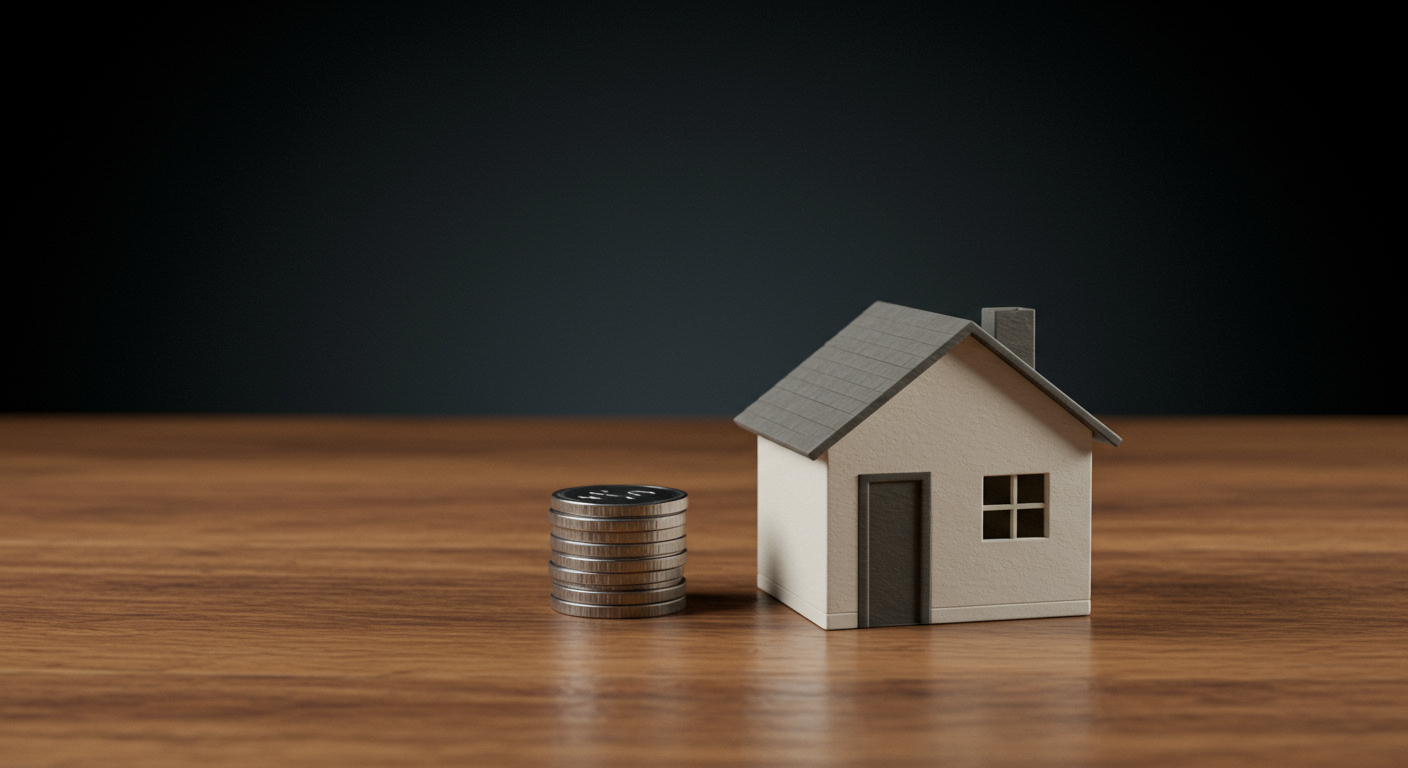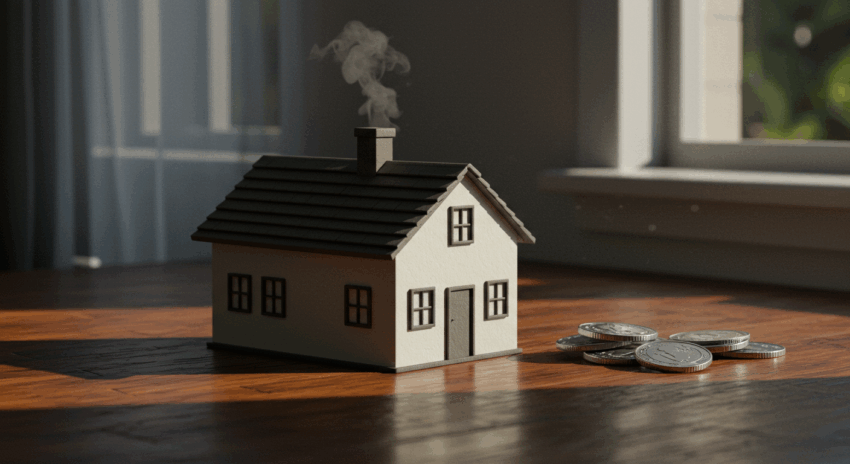How Do Mortgages Work? A Clear Guide to Home Financing
Understanding how mortgages work is a fundamental step toward homeownership and a cornerstone of sound personal finance. For many, a mortgage represents the largest financial commitment they will ever make. It can feel intimidating, filled with complex terms and processes. However, this guide is designed to demystify the world of mortgages, providing you with the clear, essential information you need to navigate the path to buying a home with confidence. We will break down the core components, explain key terminology, and outline the process from start to finish.
A mortgage is, at its heart, a loan used to purchase real estate. When you take out a mortgage, a lender (like a bank or credit union) gives you the money to buy a property. In return, you agree to pay back the loan, plus interest, over a set period. The most crucial aspect of a mortgage is that it is a secured loan. This means the property you are buying serves as collateral. If you fail to make your payments, the lender has the legal right to take possession of the property through a process known as foreclosure.
The Anatomy of a Mortgage Payment: PITI Explained
Your monthly mortgage payment is more than just paying back the loan amount. It typically consists of four main parts, commonly known by the acronym PITI. Understanding each component is vital for budgeting and grasping the true cost of homeownership.
- Principal: This is the portion of your payment that goes directly toward paying down the original amount you borrowed. In the early years of your loan, a smaller percentage of your payment goes to the principal, with that amount increasing over the life of the loan.
- Interest: This is the cost of borrowing the money, paid to the lender. The interest rate determines how much you pay. At the beginning of the mortgage term, the majority of your payment is allocated to interest.
- Taxes: Property taxes are assessed by local government authorities and are used to fund public services like schools, police, and infrastructure. Lenders often collect a portion of these taxes with your monthly payment and hold them in an escrow account, paying the tax bills on your behalf when they are due.
- Insurance: This includes homeowner’s insurance, which protects your property against damage from events like fire or storms. It may also include Private Mortgage Insurance (PMI) if your down payment is less than 20% of the home’s purchase price. PMI protects the lender, not you, in case you default on the loan.

Essential Mortgage Terminology You Need to Know
Navigating the mortgage landscape requires familiarity with its language. Here are some of the most important terms you will encounter. Gaining a solid understanding of these concepts is a critical part of managing your personal finance journey.
- Loan Term: This is the duration of your loan. The most common terms are 15-year and 30-year mortgages. A shorter term means higher monthly payments but less total interest paid over the life of the loan. A longer term results in lower monthly payments but significantly more interest paid over time.
- Interest Rate Types: There are two primary types of interest rates. A fixed-rate mortgage has an interest rate that remains the same for the entire loan term, providing predictable monthly payments. An Adjustable-Rate Mortgage (ARM) has an interest rate that can change periodically after an initial fixed period, causing your monthly payment to rise or fall.
- Down Payment: This is the upfront cash you pay toward the purchase price of the home. A larger down payment reduces the amount you need to borrow, can result in a lower interest rate, and helps you avoid paying for PMI. Building up a substantial down payment is a key goal for effective savings.
- Amortization: This is the process of paying off your loan over time through regular payments. An amortization schedule shows how each payment is split between principal and interest. You can request this schedule from your lender to see exactly how your loan balance decreases with each payment.
- Closing Costs: These are fees paid at the end of the mortgage process. They can include appraisal fees, title insurance, attorney fees, and loan origination fees. Closing costs typically range from 2% to 5% of the total loan amount, so it is crucial to budget for them.
The Mortgage Application Journey: From Pre-Approval to Closing
Securing a mortgage is a multi-step process that requires careful preparation and documentation. While it can seem complex, breaking it down into manageable stages makes it much more approachable.
First, you should seek pre-approval. This involves a lender reviewing your financial information, including your income, assets, and credit score, to determine how much they are willing to lend you. A pre-approval letter shows sellers that you are a serious, qualified buyer. Once you are pre-approved, you can begin house hunting with a clear budget in mind. After your offer on a home is accepted, you will submit a formal mortgage application, providing extensive documentation like pay stubs, tax returns, and bank statements.
The lender’s underwriting team will then verify all your information and assess the risk of the loan. During this time, the lender will also order an appraisal to ensure the property is worth the amount you are borrowing. Finally, once the loan is approved, you will proceed to closing. At the closing meeting, you will sign all the final legal documents, pay your closing costs and down payment, and officially receive the keys to your new home.

The Critical Role of Your Credit Score
Your credit score is one of the most influential factors in the mortgage process. Lenders use it to gauge your creditworthiness and the likelihood that you will repay your loan on time. A higher credit score demonstrates a history of responsible borrowing, which translates into lower risk for the lender. Consequently, borrowers with higher scores are typically offered lower interest rates.
The difference of even a fraction of a percentage point on your interest rate can save you tens of thousands of dollars over the life of a 30-year loan. Before you apply for a mortgage, it is wise to check your credit report for any errors and take steps to improve your score. Consistently paying your bills on time, keeping your credit card balances low, and avoiding new debt in the months leading up to your application can have a significant positive impact.
Conclusion: Empowering Your Homeownership Journey
A mortgage is more than just a loan; it is a powerful financial tool that can help you achieve the goal of homeownership. By understanding its fundamental components—from the PITI payment structure to the importance of your credit score—you can transform a daunting process into a manageable and empowering experience. Prepare by strengthening your finances, learning the terminology, and approaching each step with knowledge and confidence. A well-understood mortgage is the foundation of a successful real estate investment and a secure financial future.
If you need personalized advice on your mortgage options, it is best to contact a qualified and experienced mortgage professional who can guide you based on your specific financial situation.
Frequently Asked Questions (FAQ)
What is the difference between pre-qualification and pre-approval?
Pre-qualification is a quick, informal estimate of how much you might be able to borrow, often based on self-reported financial information. Pre-approval is a more rigorous process where a lender verifies your income, assets, and credit to provide a conditional commitment for a specific loan amount. A pre-approval is much stronger and more respected by sellers.
Can I pay off my mortgage early?
Yes, in most cases, you can make extra payments toward your principal to pay off your mortgage faster and save on interest. However, you should check your loan documents for any prepayment penalties, which are fees some lenders charge if you pay off the loan within a certain period. Most modern mortgages do not have these penalties, but it is always best to confirm.
What happens if I miss a mortgage payment?
Missing a payment can have serious consequences. Lenders typically offer a grace period, but after that, they will charge a late fee. A missed payment will be reported to credit bureaus, which will negatively impact your credit score. If you continue to miss payments, the lender can initiate foreclosure proceedings, which could ultimately result in the loss of your home. If you anticipate having trouble making a payment, contact your lender immediately to discuss possible options like forbearance or a loan modification.





